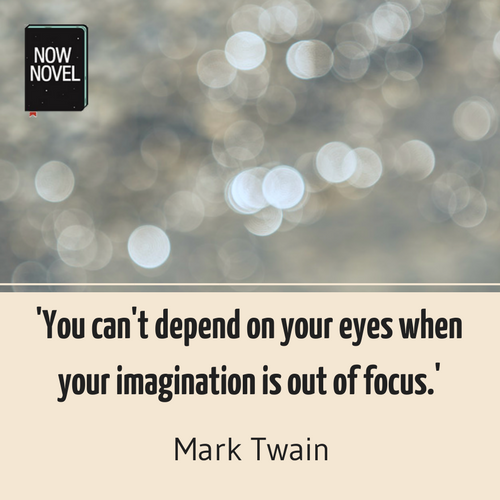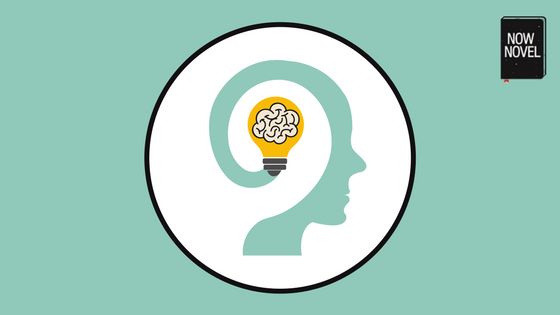Story topics are all around us, yet having a wide breadth of choice can be daunting. Sometimes we know what we want to write already, at least vaguely, as it’s the reason we’ve chosen to write a book in the first place. Yet what if you’re between projects and can’t think of a new idea? Or you simply can’t decide what you want to write about? Try these simple ways to find story topics:
1. Find story topics through chance or random methods
Often we get stuck because we have habitual ways of doing things that aren’t feeding our creative imagination. Chance or randomness is great for stirring your imagination and finding story topics and ideas you might not have otherwise thought up.
This is an approach that was particularly popular with the French group of writers OuLiPo. A member, Georges Perec, set himself the task of writing an entire novel without using the letter ‘e’ (the most common letter in the French language!). Explaining the disappearance of the letter itself became part of the story’s plot. This group saw that using constraints in their creative decisions could actually open new creative possibilities they hadn’t hitherto imagined.
Here’s a chance exercise to find a story topic, right now:
- Open a favourite book to a random page and write out the first complete sentence from start to full stop/period.
- Read over the sentence. Try to start a story with that sentence as the opening line. Later, delete your first line.
- Alternatively, look for an object or action in the sentence. Write it in the middle of a blank page, to mind-map. Now start writing things you associate with it freely in the spaces around this word. Do any ideas come up for a story that could combine these different images and ideas?
As an example, here’s a random line from Arundhati Roy’s The Ministry of Utmost Happiness (2017):
‘So as not to attract undue attention, she left the exterior walls rough and unfinished.’ (p. 67)
You might start a story with this line about a woman building a house. Why might a person leave a house looking unfinished ‘so as not to attract undue attention?’ Maybe whoever will live there is not socially accepted, for example. Or could the house be a covert library for readers in an authoritarian society that has outlawed books?
Allow your imagination to run wild.

2. Play with time and place
Many great story ideas come from putting characters or situations in unlikely times and places. A classic exmaple is Mark Twain’s A Connecticut Yankee in King Arthur’s Court (1889).
In Twain’s classic novel, Hank Morgan, an engineer from Connecticut, is transported to medieval England under the reign of the mythical King Arthur, after suffering a concussion.
By putting a contemporary character in a different time setting, Twain is able to poke fun at both modern life and early modern ‘superstition’, via each culture’s mores and ideas.
To combine unlike times and places into a story idea, you don’t have to include actual time travel, either. You could write a list of elements common to one place and era, and elements from another and combine them in a new, completely fictional setting.
Genres like steampunk (which combines early industrial steam-powered technology with elements of modern times) follow this playful approach to time and place.
3. Ask ‘What if?’
Finding a great story topic can be as simple as asking ‘What if?’ and writing down each imaginary situation that comes to mind. For example:
- What if a man were transformed into a critter overnight that horrified his family? (The ‘What if’ question that could result in Franz Kafka’s Metamorphosis)
- What if society was built around women’s enslavement as baby-making vessels? (The ‘What if’ that could result in Margaret Atwood’s The Handmaid’s Tale)
This question is one step in the ‘Central Idea’ section of the Now Novel dashboard – start the process and ask idea-finding questions.
4. Turn to current affairs for inspiration
The saying ‘truth is stranger than fiction’ may be cliched, but consider global politics. Many did not believe, for example, a real estate mogul and reality TV personality would become president of the USA.
As a creative exercise, open a news site like BBC News and write down the first headline that catches your eye and intrigues you. For example:
‘What makes this Girl Scouts group special?’
Even a headline this simple is a gold mine for story topics. You could start a story about an unusual group of girl scouts with magic powers. Or maybe they’re underage spies. Perhaps it’s a group in which every member has a rare syndrome that causes them to appear much younger than they are. They’re actually a band of criminal masterminds who can lead police on a wild goose chase because of their seeming innocence.
Don’t be afraid to push ideas for story topics into the realm of the the ridiculous or campy. If a story idea fills you with ideas for intriguing events and characters, run with it and see where it goes. All time spent writing and actively solving creative story challenges is time that will help you get closer to writing the fantastic story only you can.

5. Find story topics through saying ‘No!’
Writing from a place of outrage or simply mild annoyance is often great motivation. Have you ever read a book where you were annoyed by the author’s lack of understanding of (for example) women, men, gender, mental health, romance, global politics? The list goes on.
Find the tropes (the recurring motifs in books) that most annoy you and try turn them on their head. Both Mark Twain’s book about a Yankee in King Arthur’s court and Cervantes’ Don Quixote are satires on the heroic tales of olden times, in part. They turn a jaded, humorous eye on epic tales of noble deeds; heroism. Twain, for example, shows the way people use superstition to manipulate others through the ages. He shows the very contemporary one-upmanship and trickery behind the hocus pocus.
Cervantes writes many situations where we see the gap between Don Quixote’s romantic view of the world and the actual way things (through his ‘simple’ sidekick’s eyes).
Finding great story topics is easy when you try different approaches and feed your imagination. Start brainstorming now.


11 replies on “Finding story topics when stuck: 5 simple methods”
Typo. Search “Read over the sentence. Try start a story with that sentence as the opening line. Later, delete your first line.” The “to” is missing: “Try [to] start a story…”
Welcome.
Hi Jeff, thanks for pointing that out – it’s a missing part of speech (the infinitive) rather than a typo, to be specific. In ordinary speech we do sometimes leave these out if the meaning is still clear. But if we’re being pedantic about rules, that’s correct. We’ve changed it. Thanks for reading!
So, you’re not a writer, right?
Great post.
Thank you, Tinthia, thanks for reading!
Thanks, Bridget. This has definitely given me some inspiration for new ideas. I really like the one about using news’ headlines, and it has just reminded me about an article that caught my eye about 15 years ago. It’s still in my “ideas file” so I might just …
Only catching up now, Elizabeth, my apologies. I hope you did ‘just’! I’d love to know what the headline was.
Liked this article! Specially 3rd and the last point. Ill give it a try and see how it works for me.
Thank you, Lisa. I’m glad you enjoyed it. I hope you enjoyed trying out those ideas, too.
Great work Jordan! Very well-written and helpful.
Reading can inspire an array of story ideas that no author has written about.
Check this out How to Come Up With Great Story Ideas
Thanks
Cheers,
Caroleann
Hi Caroleann, thank you very much, I’m glad you liked this. Thank you for sharing your own advice on finding ideas from your blog.